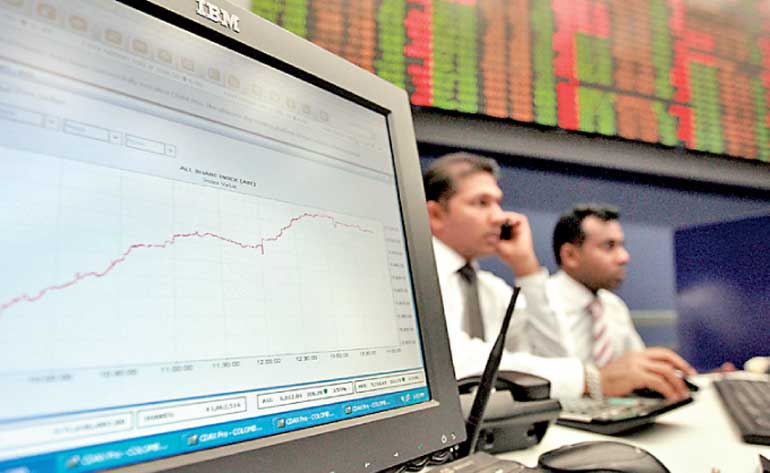Thursday Feb 19, 2026
Thursday Feb 19, 2026
Tuesday, 12 January 2016 00:09 - - {{hitsCtrl.values.hits}}
(Reuters) - Sri Lankan shares fell for a sixth straight session, to mark their lowest close in 1-1/2 years, led by declines in diversified and banking stocks due to local and global concerns, brokers said.
Fears over investors shifting to risk-free assets such as government securities due to rising yields in government securities dented sentiment.
The main stock index ended 1.13% or 75.96 points down at 6,650.32, the lowest close since 9 July, 2014. The index fell as much as 1.4%, posting its biggest fall since 25 August 2015.

The bourse dipped further into an oversold territory on Monday with the 14-day relative strength index at 22.844 points versus Friday’s 28.357, Reuters data showed. A level between 30 and 70 indicates the market is neutral.
“Market is down with a lot of negativity. Local and global concerns weighed with no positive news,” said Softlogic Stockbrokers research head Danushka Samarasinghe, in Colombo.
The day’s turnover was at Rs. 991.2 million ($6.90 million), its highest since 6 January.
Foreign investors were net sellers of Rs. 138.86 million ($965,982.61) worth of equities on Monday extending the year to date net foreign outflow to Rs. 1.68 billion worth of equities, as compared with Rs. 4.43 billion outflow in 2015.
World stocks fell to near 2-1/2 year lows on Monday as a fresh pounding for Chinese markets left Asia at a four-year trough and sent oil and commodity markets sprawling again.
Local investors are worried about more monetary tightening after the Central Bank raised commercial banks’ statutory reserve ratio by 150 basis points with effect from Jan. 16.
Following the Central Bank ‘s move, the yield on 91-day t-bill rose 14 basis points to an over-two-month high of 6.59% at a weekly auction on Wednesday.
Analysts expect more investors to shift from risky assets to fixed assets with higher interest rates and shrinking of global investments in Sri Lanka.
Shares in conglomerate John Keells Holdings Plc fell 1.6% and Cargills (Ceylon) Plc slipped 6.9%, dragging the overall index. The biggest listed lender, Commercial Bank of Ceylon Plc fell 1.2%.
Rupee steady on thin trade
(Reuters) - The Sri Lankan rupee ended steady on Monday as dollar sales by a private bank helped maintain the local currency in a dull market amid lower importer dollar demand, dealers said. |